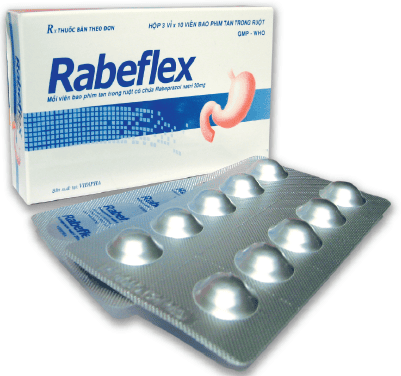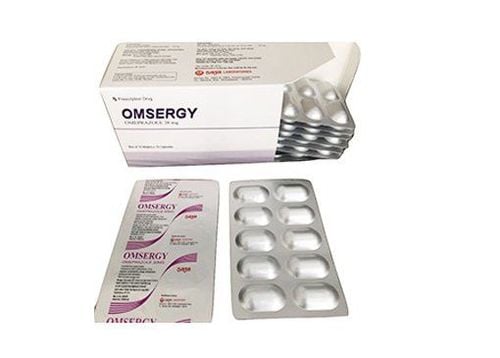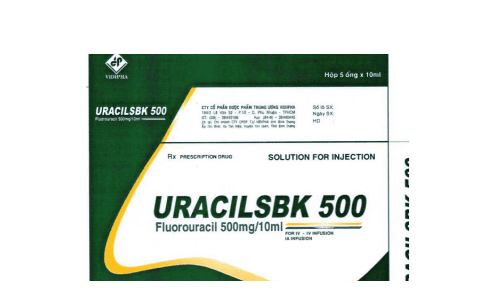This is an automatically translated article.
Looking down the toilet and seeing the color of stools seem a little different than usual will cause many people stress. While this may not be a cause for concern, in some cases, passing black, tarry stools can be associated with a more serious problem. Therefore, knowing what black stool is or what food causes black stools will help people better understand their own health.
1. What causes black stools?
1.1. Consuming dark-colored foods If you notice your stools turning from their usual yellow-brown color to a darker color, it could be due to the foods you've eaten. This is especially true if the person does not notice any digestive symptoms or other discomfort.
Some foods that can cause black stools are as follows:
Black licorice; Blueberry; Dark Chocolate Cookies. 1.2. Taking iron supplements Many people taking iron supplements to treat iron deficiency anemia can cause a number of side effects, including:
Nausea; Constipation or diarrhea; Black pepper. Accordingly, if you take iron supplements and have problems with side effects, talk to your doctor. There are different types of iron supplements, and some can be more likely to cause stomach upset or digestive upset.
1.3. Using medicines containing bismuth Medicines containing bismuth subsalicylate such as Pepto-Bismol can cause you to pass black stools. Even eating too much bismuth subsalicylate over a long period of time can cause your tongue and teeth to turn black.
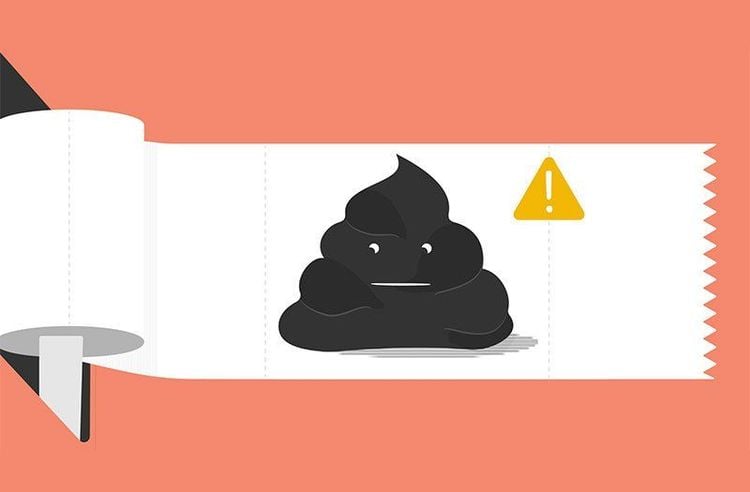
Có nhiều nguyên nhân khác nhau gây ra tình trạng phân màu đen
2. Find out what is black stool?
2.1. Gastrointestinal ulcers that lead to black stools Ulcers are open sores on the lining of the digestive tract. Although not always painful, peptic ulcers can cause:
A burning sensation in the stomach; Undigested; Heartburn, heartburn; Unappetite to eat; Dizziness, fatigue. When the sores start to bleed, the bleeding from here can produce more serious symptoms, including black, sticky stools (which are darker in color due to blood mixing with digestive juices). Since this is a more serious symptom, a person should see a doctor as soon as possible, especially if black stools are accompanied by the above symptoms.
2.2. Upper GI bleeding In addition to ulcers, there are a number of other conditions that can cause bleeding in the upper gastrointestinal tract, which in turn can lead to stools that are black like tarry and have an unpleasant odor, including:
Inflammation stomach; Esophagitis; Mallory-Weiss syndrome; Esophageal or stomach cancer. Accordingly, if the stool is black, has frequent bowel movements and lasts for several days, accompanied by abdominal pain, vomiting blood, dizziness, lightheadedness, low blood pressure, the patient may have gastrointestinal bleeding. be taken to the hospital as soon as possible.
2.3. Esophageal varices rupture The esophagus is a tube that carries food and liquids to the stomach. When the veins inside the esophagus become swollen (a condition often associated with portal hypertension due to cirrhosis or other advanced liver disease) they can sometimes rupture and cause both red, bloody, or bloody stools. black, tarry stools.
It is important to see a hepatologist regularly, especially if you have chronic liver disease, are at risk for cirrhosis, or have advanced into decompensated cirrhosis. The doctor will take effective measures to prevent esophageal varices from rupture before the actual event occurs.
3. Tests to do when going to the toilet with black stools
In addition to black stools, if other symptoms are not severe enough to warrant immediate medical attention, the attending physician will likely ask about your medical history and perform a physical exam to try to confirm the diagnosis. Determine the cause of abnormal stool color. You may be asked to have blood tests and stool samples taken.
Besides, the patient is also scheduled by the doctor for a gastroscopy or colonoscopy to see abnormalities inside the digestive tract. During this procedure, your doctor inserts a thin, flexible tube through your mouth into your upper digestive tract or through your anus into your rectum. The endoscope has a camera on the end to look inside the food and drink and find the cause of black stool symptoms. Common injuries may be due to rupture of esophageal varices, ulcers of the stomach, duodenum, or colonic mucosa.
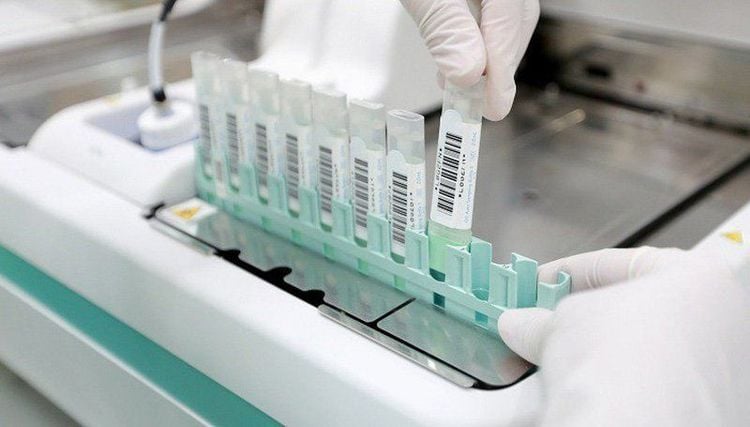
Một số xét nghiệm giúp kiểm tra tình trạng phân màu đen của người bệnh
4. What are the treatments for black stools?
Treatment regimens for black stools vary according to the cause of the condition.
If black stools are caused by eating a lot of blueberries, raspberries and other dark foods, limit your intake for a few days and see if this makes a difference. The same goes for iron supplements and medications containing bismuth subsalicylate: If you think black stools may be related to taking either of these medications, talk to your doctor about safe alternatives. .
For what is the cause of black stools on the digestive tract, the patient will be treated with the following measures:
Proton pump inhibitors, which reduce the amount of acid in the stomach to facilitate digestion the ulcer heals quickly; H2-receptor antagonists also reduce the amount of acid in the stomach; Over-the-counter antacids; Stop taking non-steroidal anti-inflammatory drugs (NSAIDs); Local hemostasis through endoscopic or surgical intervention will be chosen for cases of severe bleeding ulcers. In summary, black stools can be caused by many different things, from eating too much black licorice to bleeding in the gastrointestinal tract. The key to determining how severe black stools are is based on other existing symptoms. So, if you feel nausea, abdominal pain, dizziness accompanied by black stools, quickly contact your doctor for proper intervention before acute anemia worsens.
Please dial HOTLINE for more information or register for an appointment HERE. Download MyVinmec app to make appointments faster and to manage your bookings easily.
References: webmd.com, healthline.com, verywellhealth.com




